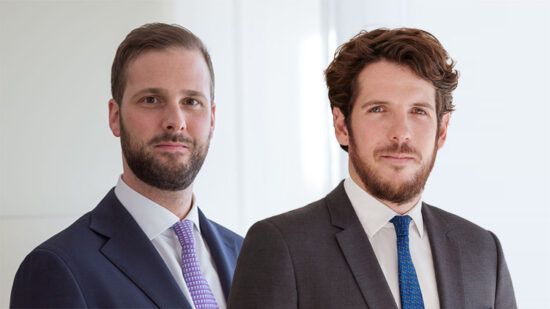Past performance might not necessarily be indicative of future returns, but apparently it is indicative of an expanding validation of ESG investing.
For the second year in a row, Calvert Research and Management, a $32 billion fund shop built on a foundation of sustainable investing strategies, is the overall winner in the small company category of the Refinitiv Lipper Fund Awards.
The annual awards, which are based on risk-adjusted performance over the past three-, five- and 10-year periods, sets the breakpoint between small and large companies at $99.4 billion under management.
[Gallery: View top Lipper Fund Awards winners here]
American Century Investment Management was both the overall large company winner, and the winner in the large company equity category.
The small company equity winner was Paradigm Capital Management.
On the fixed income side, Vanguard Group was the large company winner, and Carillon Tower Advisors was the small company winner.
In the mixed asset category, State Street Bank and Trust Co. was the large company winner, and Manning and Napier Advisors was the small company winner.
While the world of investing strategies encompassing environmental, social and governance issues is quickly spreading across the general financial services landscape, it is noteworthy that a company like Calvert and a dedicated strategy like the $6.7 billion Pioneer Fund (PYODX) rise to the top as Lipper Award winners this year.
The Pioneer Fund, which is part of Amundi Pioneer, the world’s ninth-largest asset manager, was launched in 1928 and has long applied sustainable investing principles, according to portfolio manager Jeff Kripke.
“In 1940s the fund’s biggest client wanted to be socially responsible, so the portfolio excluded things like alcohol, gaming, tobacco and other sin stocks,” said Kripke, who has been part of the fund’s management team since 2015.
“We’ve expanded to not owning coal, and certain defense contractors, and the fund became a formal ESG fund in 2018,” he said. “The name of the fund didn’t change, but the ESG focus was formalized in the prospectus.”
Calvert Funds, which was acquired earlier this month by Morgan Stanley, marking its third owner in six years, is also illustrating the resilience of dedicated ESG investing strategies.
As a companywide winner, Chief Executive John Streur said, “It is hard to identify a specific area that has carried us.”
“ESG-wise, we are in a good position because the adoption of ESG by the marketplace we think is at the very, very beginning stages,” Streur said. “Even though the regulatory environment is not fully developed, and the vocabulary is still confusing for investors, the money coming in is strong. This is being led by client demand, not by a regulatory regime or new product ideas from the Wall Street machine.”
Beyond the ESG theme, which also stood out in the list of Lipper Award winners a year ago, 2021 produced a record 21 funds that swept the three-, five- and 10-year categories.
Invesco and American funds each had four funds that swept the three time-period categories.
“Such sustained excellence is at the very core of what these awards are looking to highlight in the industry,” said Robert Jenkins, global head of research at Refinitiv Lipper.
Jenkins described the $71.2 billion Vanguard International Growth Fund (VWIGX), which has swept all three time-period categories in each of the past four years as the “Meryl Streep of funds,” in a nod to the actress who has won multiple Academy Awards.
Vanguard, which won a total of 22 individual awards this year, credited its overall fixed-income award to experience and consistently low fees.
“In the fixed-income group, we’ve been managing bond funds for over 40 years,” said John Hollyer, Vanguard’s head of fixed income.
“Looking at our active and index funds, there is a breadth of reasons we’re receiving awards,” he added. “The team we have has tremendous strengths.”
American Century, which made news in 2020 for being the first asset manager to launch a semitransparent actively managed ETF, is showing that there is still plenty of firepower in the active management space.
“Active management performs well when things change,” said chief investment officer Victor Zhang.
“In 2020, despite all the volatility, the rate of change requires active decision-making,” he added. “With Covid and the onslaught of its impact, it required immediate responses. Passive investing is a byproduct of what active managers have already done. Within equities we were good in growth, value, U.S. and non-U.S, and it comes back to us having a very solid and robust team.”
And while American Century doesn’t openly promote itself as an ESG-focused company, Zhang said it is very much a part of the asset management philosophy.
“Before people were paying serious attention to sustainable being a global economic trend, we were looking at how real industries and companies are taking advantage of these trends, and right now 80% of our assets have ESG integration,” he said. “That doesn’t mean it’s an ESG portfolio, it means we consider ESG factors in our decision-making.”
At Carillon Towers, an investment subsidiary of Raymond James, the small company fixed-income winner attributed the award to not being too aggressive in chasing performance when yields have been so low.
“The environment today is as challenging as it has been in the past 30 or 40 years, and the important thing is you communicate to clients to have proper expectations,” said Mark Egan, chief investment officer at Reams Asset Management, which is the lead portfolio manager of the Carillon Reams Bond Funds.
The asset manager was cautious and conservatively biased heading into the pandemic because things were expensive, Egan said.
“Low-risk portfolios gave us the ability to take advantage of pandemic-related panic. We were positioned perfectly heading into the pandemic because we were positioned for a volatility storm,” he said.








